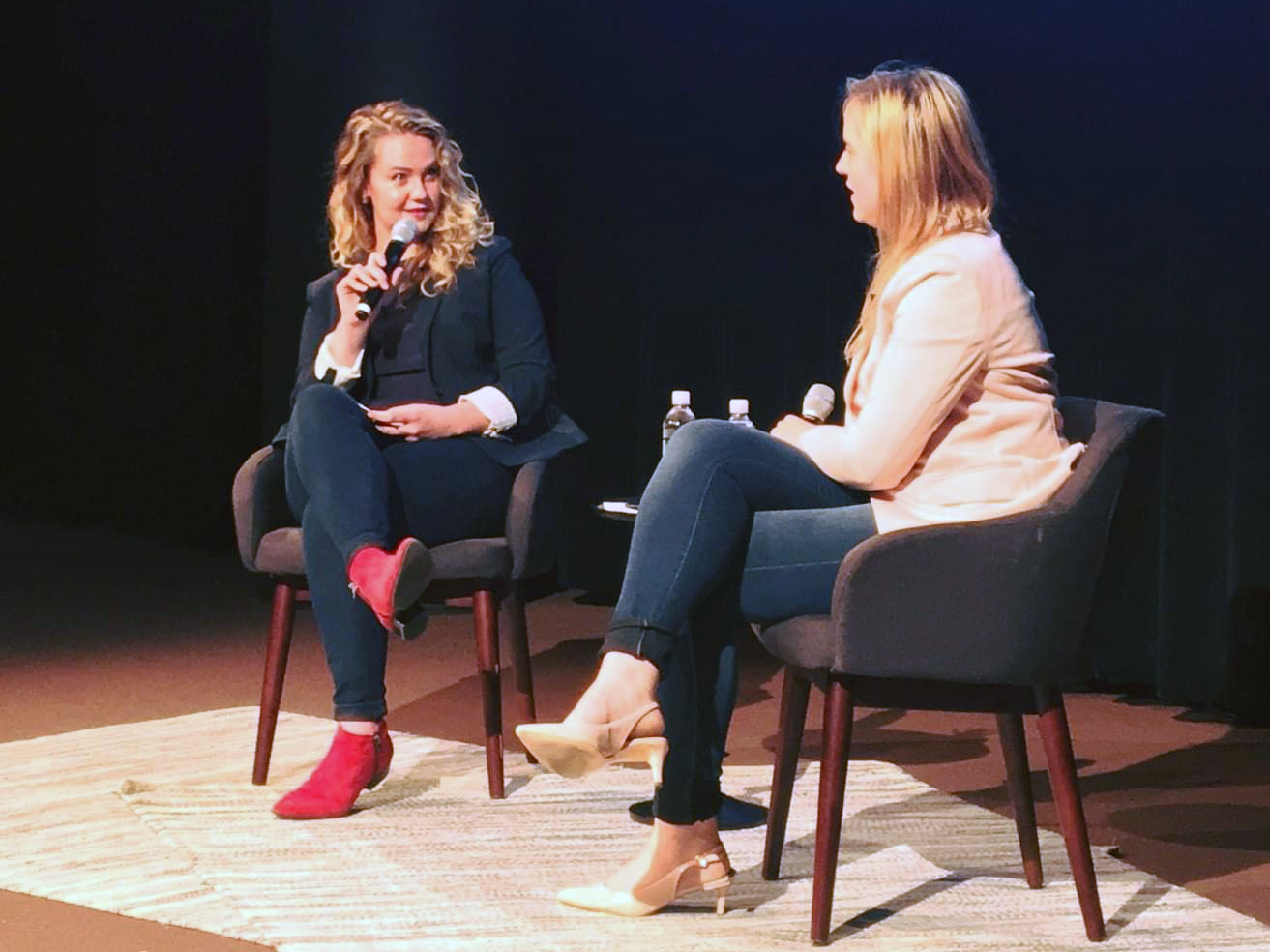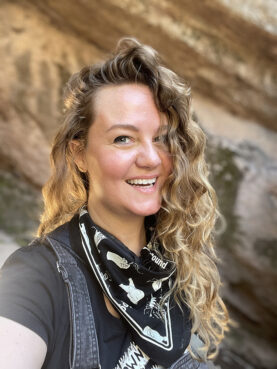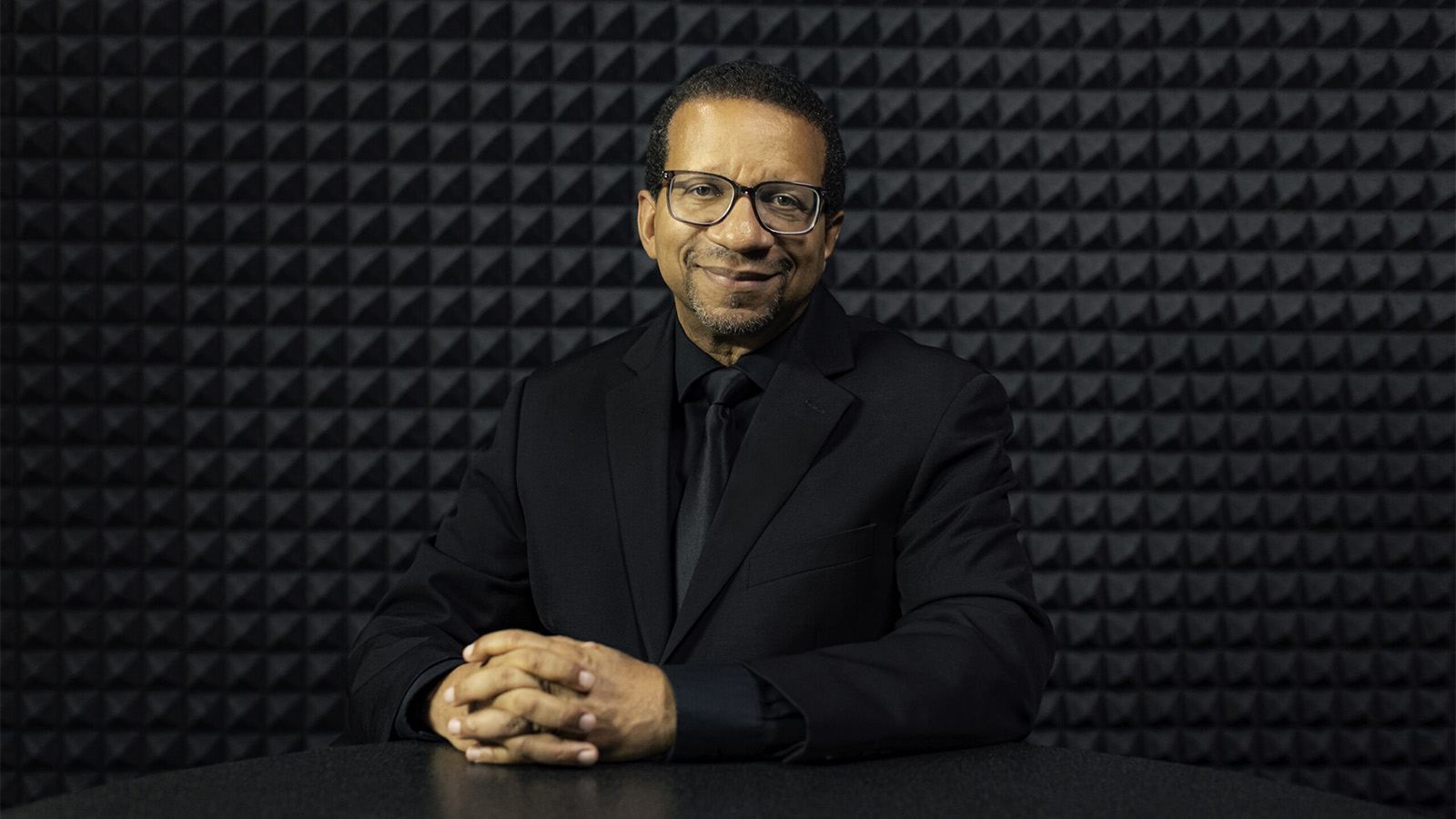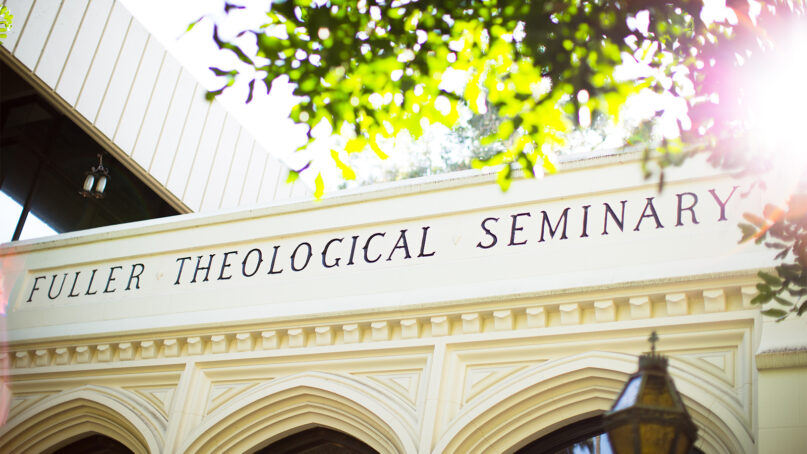(RNS) — When Ruth Schmidt enrolled at Fuller Theological Seminary in 2016, she said it was the first time she felt as if her voice mattered.
Raised in a nondenominational church in Kansas with “flavors of Southern Baptist,” Schmidt thinks of her community as compassionate but dismissive of the contributions of women pastors. But at Fuller, the 77-year-old school in Pasadena, California, known for its relative theological diversity among evangelical institutions, her calling to the ministry was never in question.
“I felt like I was seen and respected in a way that I’d never experienced anywhere else,” Schmidt said.
In January, Schmidt, a salaried employee at Fuller since 2020, was fired from her senior director position after declining to sign Fuller’s statement of faith. With her imminent ordination in the United Church of Christ, which accepts marriage for LGBTQ couples, she had balked at signing a statement that says “sexual union must be reserved for marriage, which is the covenant union between one man and one woman.”
A spokesperson from Fuller declined to discuss individual employees, but confirmed that all members of its community are required to adhere to its standards. He also quoted a community update from Fuller President David Emmanuel Goatley in which the president indicated the seminary is re-examining its policy on human sexuality.
“We can inform and inspire people to engage with civility and hospitality even in areas of disagreement,” Goatley wrote.

Ruth Schmidt, left, interviews a filmmaker for a live audience in Travis Auditorium at Fuller Theological Seminary in May 2019. (Courtesy photo)
But Schmidt told Religion News Service that students, who are required to affirm Fuller’s faith statement, need room to discern their own beliefs, which are evolving in their seminary years.
“A lot of people enter theological education not knowing what they believe about queer Christians. And so you go through your educational journey, and at the end it’s possible you land in a different place than the school’s standards. But you don’t have to re-sign those standards when your convictions change,” said Schmidt. “That’s how so many affirming folks end up at Fuller.”
As a student, Schmidt was energized by her sexuality and ethics course, which gave her space to wrestle with her beliefs about human sexuality while in a Christian context. Eventually, Schmidt concluded she was LGBTQ-affirming.
When she was promoted to senior director in 2022, she was asked to re-sign Fuller’s community standards, which include the faith statement. At the time, she told RNS, she was in a vulnerable financial position and was still finishing her degree. If she lost her job, she couldn’t afford to stay in California, which would throw off her ordination process.

Ruth Schmidt. (Courtesy photo)
“After a lot of prayer, God gave me peace that at that moment, it was OK to sign it and not lose housing,” said Schmidt. “However, in that moment, I decided I’m never signing this again.”
The next year, Schmidt knew the request to re-sign was coming. In preparation, she initiated conversations with her supervisor in October 2023, alerting them to the fact that signing the statement would conflict with her denominational call. After a series of meetings with leadership failed to yield a path forward, Schmidt posed a legal rider that would allow her to respect, but not personally affirm, the standards regarding gay marriage.
“Even though I’m able to navigate this space, I can’t put my signature next to something that will harm the people that I’m called to serve,” she told RNS.
In the end, the school declined her proposal. Schmidt was terminated in a Zoom call on Jan. 2, and while she said human resources handled her situation with kindness, she also believes Fuller should not market itself as a multidenominational school while excluding people from LGBTQ-affirming denominations.
“For Fuller to say it’s multidenominational, but then not honor the theology of most mainline denominations, it’s just not truthful,” said Schmidt. “When you’re training clergy and pastors … you should respect the place where the Holy Spirit has called them to serve.” She later posted about her termination on Instagram.
Schmidt’s termination has prompted broader conversations at Fuller about the treatment of queer people at the seminary. David Eng-Wong, a Ph.D. student who started at Fuller in 2016, told RNS he thinks the community standards tend to disproportionately impact LGBTQ students, even though prohibition against sexual activity outside of marriage also applies to straight students.
“I think part of it has to do with the visibility of LGBTQ issues versus, say, cheating or adultery or sex before marriage, cohabitation before marriage, that kind of thing. There’s a kind of invisibility to the latter issues that I think goes under the radar,” said Eng-Wong. “Hetero couples get a much easier pass on those kinds of things in violation of the community standards as compared to LGBTQ couples.”
On Jan. 10, roughly eight students staged a demonstration during chapel. During the benediction, the students took to the stage, holding signs saying, “LGBTQ+ Let’s talk about it,” and “I want to talk in safety.”
“We students … demand a moratorium on expulsions and firings on the basis of community sexual standards,” a Fuller alumni said, reading a statement presented on behalf of the student-led demonstration. “We demand transparency as you discern how the community standards will form the seminary moving forward. We want to join the conversation.”
Outside the chapel, a larger group of around 40 people, including some alumni and staff, had also set up a peaceful demonstration with signs, according to students.
Following the demonstration, Goatley took to the stage to share how the seminary had been taking steps to discern the school’s approach to human sexuality and implications for theological clarity, pastoral companionship, employment and community life. Goatley also issued a community update on Jan. 18 stating the board had authorized seminary leadership to re-visit the school’s approach to human sexuality in fall 2022, which initiated conversations between the president, trustees, some students and faculty. In winter 2024, Goatley said, he appointed a task force of administrators and faculty charged with facilitating “the community’s consideration of issues related to human sexuality.”

Fuller President David Emmanuel Goatley. (Photo courtesy Fuller Theological Seminary)
“I invite all who are part of Fuller Theological Seminary to engage with a Scripturally inspired disposition of discernment and dialogue,” Goatley wrote. “This is a sacred journey. Join me in proceeding lovingly and carefully.”
One student, who spoke to RNS on the condition of anonymity, gave credit to Fuller, saying that while the seminary hasn’t done everything perfectly, it does allow community members to publicly disagree with its community standards.
“Students can have a wide range of theological positions and even publicly state them in opposition to the president of the seminary and go back to their dorms and go to class and post it on social media and talk to reporters without really too much threat of being expelled.”
Kristen Renee Ingram, a student in Fuller’s Master of Arts in Justice and Advocacy program, told RNS via email that she believes Fuller has misused the Bible to justify LGBTQ discrimination.
“Using religious texts as a rationale for discrimination goes against the principles of justice, inclusion, and compassion that institutions like Fuller should uphold,” she wrote.
Following Goatley’s community update, an informal group of students initiated a petition calling the board to pause disciplinary procedures based on the sexual community standards during Fuller’s discernment process.
“Implementing a moratorium on expulsions and terminations would establish a level playing field, ensuring that queer students, staff, and faculty are not penalized for their theological beliefs,” said Ingram.
The petition received over 200 signatures from both students and alumni and was delivered to the board in mid-January. On Jan. 25, the board responded, saying they take the concerns expressed in the petition seriously and noting the board had already commissioned the president to oversee a focused faculty discussion on the topic. The recommendations from that process, they said, would be returned to the board in May.
“In the meantime, the Community Standards and our Statement of Faith represent our current articulation of our core beliefs that guide our community’s life together,” the board chair said in an email obtained by RNS. “At the end of this current study process, we will address any needed clarifications and any corresponding implications for employment and community life.”
This isn’t the first time Fuller has grappled with its stance toward LGBTQ and LGBTQ-affirming students. In 2019 and 2020, two former students sued Fuller, alleging the school expelled them for being in same-sex marriages. In October 2020, the courts sided with the seminary, affirming Fuller’s right to uphold its sexual standards policy.
Most of the students RNS reached for this story said they’re not asking for Fuller to become an affirming institution. Instead, they want it to be one that holds space for disagreement and doesn’t penalize students who are LGBTQ.
“I went to Fuller because I value the diversity of thought that I’ve had here,” said Connor Stephenson, a Ph.D. student studying clinical psychology at Fuller. “I love many of my theology professors who haven’t been open and affirming. I want those folks to be able to keep their jobs and to be so welcome in this institution. But I also want people who are open and affirming or people who are queer to be allowed to be here.”
For her part, Schmidt isn’t asking that Fuller change the community standards but said Fuller must remove the punitive nature of the standards’ consequences.
“I think a lot of times at Fuller there has been suffering in the dark. There has been silencing, and there’s been isolation around this issue,” said Schmidt. “If it can be one more loud voice for equality and equity, I want to scream it from the rooftops, because justice happens in the light.”





